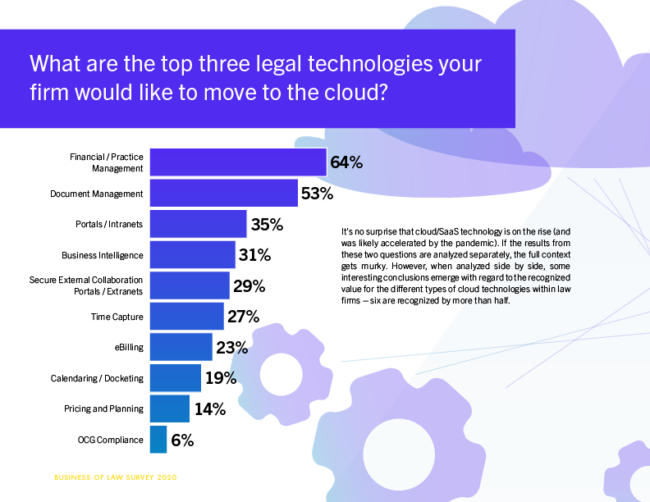Ed. note: This is the latest installment in a series of posts on motherhood in the legal profession, in partnership with our friends at MothersEsquire. Welcome Kim Felton to our pages. Click here if you’d like to donate to MothersEsquire.
As I sit finishing this article, it’s early in the morning and my coffee is already cold. My children are home from daycare due to a COVID-19 scare, my husband is off to work, and I’ve barely slept. I’m vaguely reminded of my days in law school as a new mother: Sleeping on the floor of the nursing lounge, I would try to get 30 minutes of rest between classes. I had a 4-week-old at home and the immigration sector of law was beginning to come under fire. It was the beginning of my journey as a mom and halfway through law school. By graduation, I was pregnant with baby number two, while carrying my 1-year-old across the stage with me. Once I stepped out of the law school environment and into post-graduate life, I was awakened to everything women before me had been saddled with.
There is a lot of discussion amongst the profession that law school doesn’t prepare you to practice the law. I equate it to baby books — what happens after the books tell you what size fruit your baby is? The other side of parenting that they don’t teach in those baby books is what comes next. Motherhood hit me like a truck going 190 mile per hour. Similarly, post-graduation reality caught me off guard. The truth of the profession smacked me in the face and shattered my rose-colored glasses. My path to licensing was not linear, and it wasn’t immediate successful. By this point I was pretty seasoned on what to expect when you’re expecting. But what about what to expect when you’re lawyering?
I went into the job search determined that my credentials would outshine my big belly. I refused to admit to myself that I had a physical indicator that eliminated me as soon as I walked in the door. I was in denial even after experiencing interviews where they seemed very enthusiastic about me, but then seeing their eyes fall as they size up my growing belly. Usually, they would change course of the interview and suddenly they were going in a different direction, or they would just ghost me altogether. Eventually I found a job when I was 30 weeks pregnant, but it became an experience that further illuminated the large problem deeply ingrained in the legal field. This was never meant to be a place for women.
It’s almost impossible to meet billable hours when you’re trying to pump with one hand and type with the other, or when your 2-year-old gets hurt at daycare and needs to immediately be examined for a concussion. I regularly was so tired that I’d forget to grab my hands-free pumping bra or even eat lunch. It led to the end of my breastfeeding journey a lot earlier than I wanted. Despite trying my hardest to maintain this balancing act, I was beginning to slip. I didn’t last long in that firm, and I was never going to. This wasn’t the life I wanted for myself, expectations of tucking in my children and driving back to the office, choosing between being present for newborn shots or not pissing off my boss.
This revelation of the true legal profession almost made me quit. I was either going to leave this lifestyle behind or I was going to change it from the inside out. Resourcefulness under pressure brought me to a point where I finally found my stride and forced me to innovate a way to have both my career and presence for my children. Suddenly I was working for myself and I didn’t have to lose sleep over whether I was doing too much “momming” and not enough “lawyering.” I have built my business model based on the need for a culture where you don’t have to worry about needing to go pick up your sick child, or wanting to attend a school function. I don’t want anyone spending their evenings tallying up billable increments. My decision to open a virtual firm was due to my desire for something better. It needs to be better in order for women to advance further, stay in the profession longer, and to feel satisfied in their careers. My career took off when I stopped trying to fit into a model that isn’t inclusive.
There are many nights where I am typing on my laptop with my 2-year-old son resting his head against me while sleeping. There are also occasions when my 4-year-old asks me why I work so much, or his brother runs up and shuts my Macbook while I’m typing. Truth be told, running a solo firm is demanding, and without proper systems in place, it can get pretty chaotic. I have to remind myself that my mission is not for perfection, but to foster a culture where we don’t have to choose between our incomes and our responsibilities as a parent. I still experience mom guilt, despite knowing that it’s illogical. I think it’s only because I am on a constant mission to improve in each aspect of my life. I’m fortunate that I have a really spectacular spouse who does a lot of the heavy lifting when it comes to parenting and caring for our home. His support is essential to me being able to get this far. But for those who don’t have that there has to be a better way. So, as I stumble my way through motherhood, I have the added challenge of trying to change years of indoctrination by outright rejecting it. Law school taught me how to be an attorney, but motherhood showed me what being an advocate is all about.
 Kimberley Felton is an immigration attorney and the founder of Onward Immigration, a virtual immigration law firm that uses technology and creative thinking to better serve the immigrant community. She is also the founder of Innovation Litigation that focuses on providing contract legal services to other immigration lawyers, and free up their schedules. In addition, Kim is interested in legal technology as a way to provide better service, building trust, and closing the gap on affordable services. As a mom she is on a mission to change the landscape of work-life balance. She is the proud mother of two rambunctious little boys and married to her best friend. Without his unending support, none of these successes would be possible. Hang out with her on: Instagram: @Legally_Mommed, Twitter: @Legally_Mommed, Clubhouse: @Legally_Mommed, Linkedin: https://www.linkedin.com/in/kimberley-felton-esq-687a4949/
Kimberley Felton is an immigration attorney and the founder of Onward Immigration, a virtual immigration law firm that uses technology and creative thinking to better serve the immigrant community. She is also the founder of Innovation Litigation that focuses on providing contract legal services to other immigration lawyers, and free up their schedules. In addition, Kim is interested in legal technology as a way to provide better service, building trust, and closing the gap on affordable services. As a mom she is on a mission to change the landscape of work-life balance. She is the proud mother of two rambunctious little boys and married to her best friend. Without his unending support, none of these successes would be possible. Hang out with her on: Instagram: @Legally_Mommed, Twitter: @Legally_Mommed, Clubhouse: @Legally_Mommed, Linkedin: https://www.linkedin.com/in/kimberley-felton-esq-687a4949/


















 Kathryn Rubino is a Senior Editor at Above the Law, and host of
Kathryn Rubino is a Senior Editor at Above the Law, and host of 


 Jordan Rothman is a partner of
Jordan Rothman is a partner of